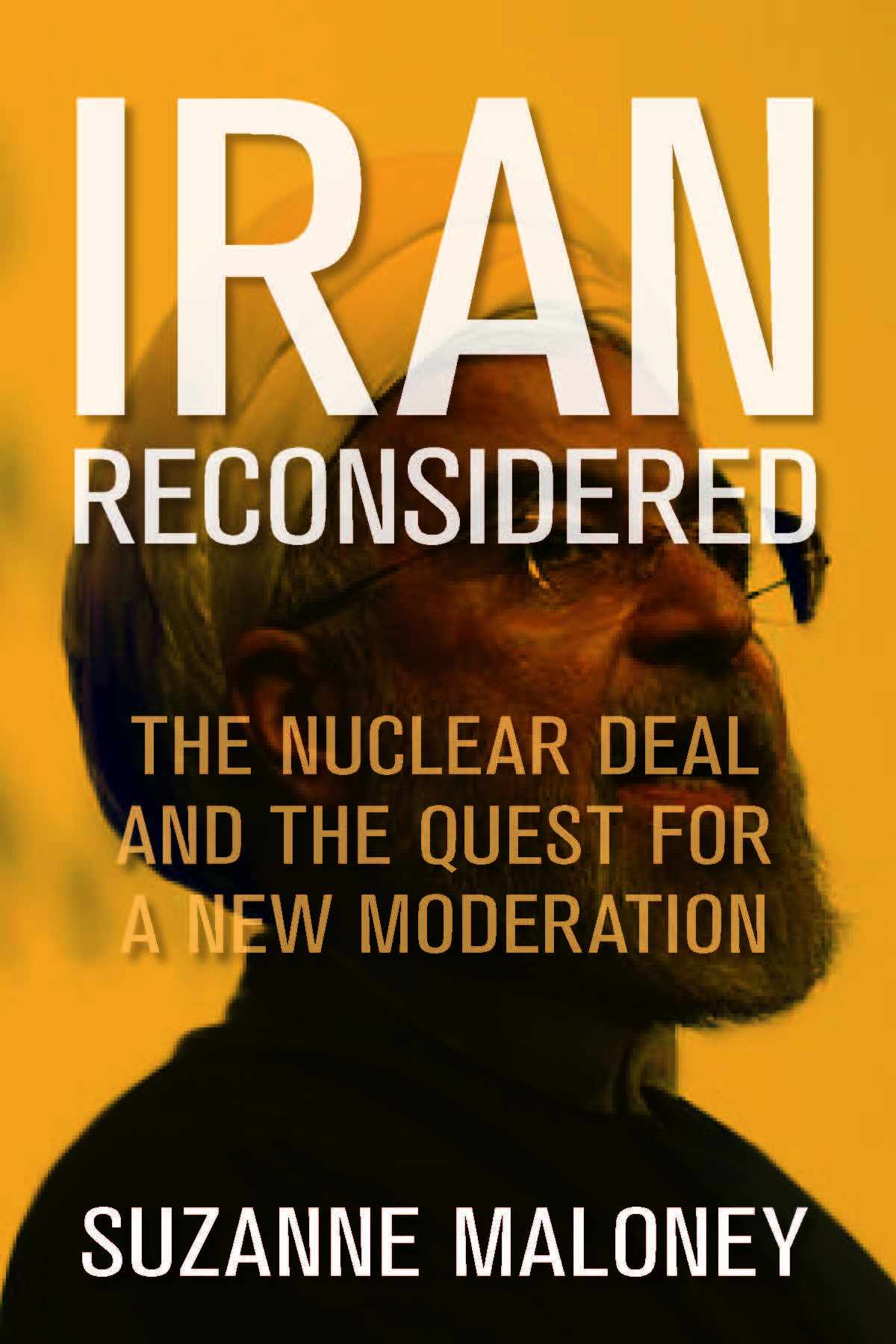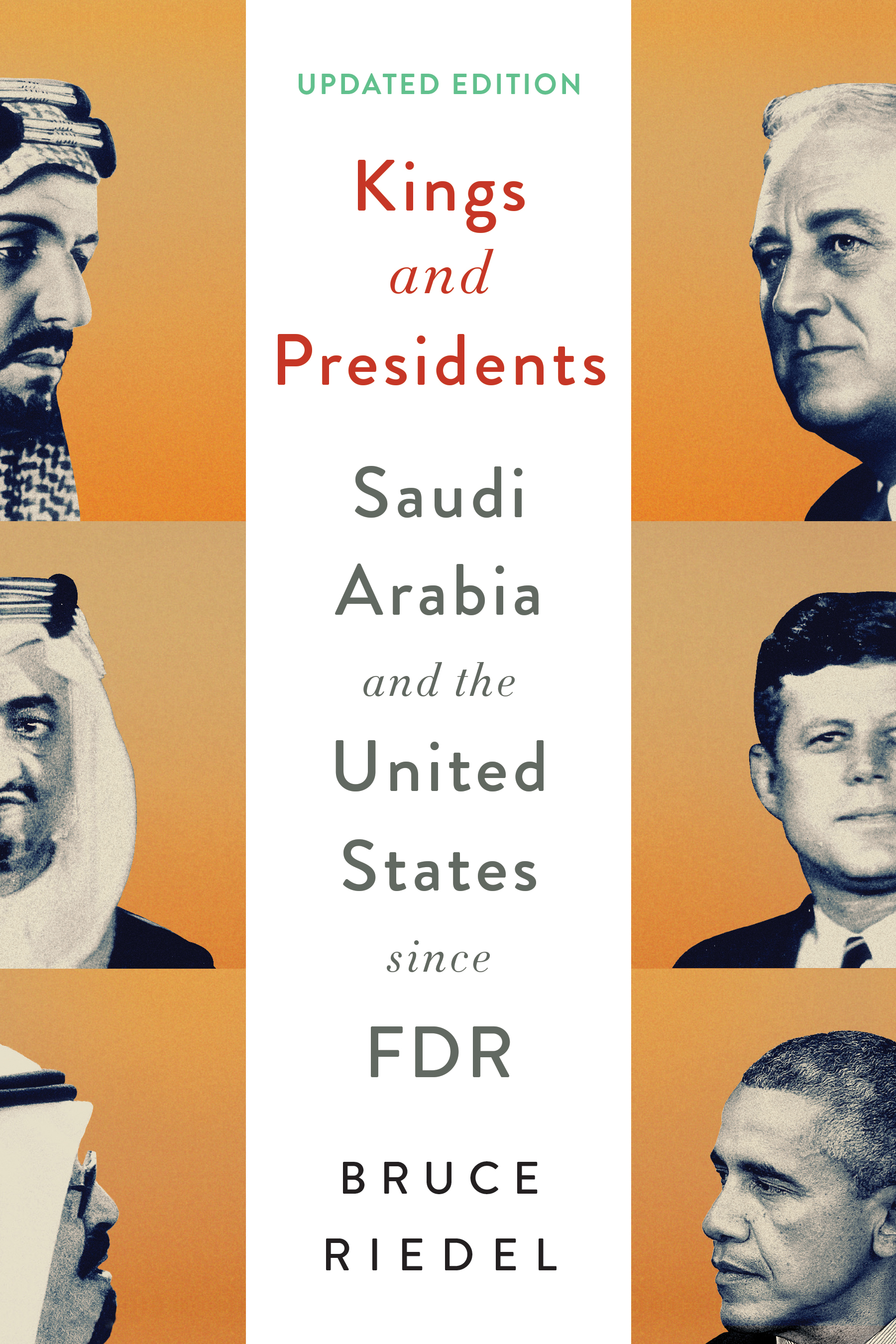On January 10, Secretary of State Mike Pompeo delivered a foreign policy address in Cairo, in which he sought to depict the United States as “a force for good” in the Middle East. Middle East experts at Brookings had a range of quick reactions to the speech, available below.
Natan Sachs (@natansachs), Director of the Center for Middle East Policy: Secretary of State Mike Pompeo came to Cairo to repeat what Obama did there in 2009. Like Obama, he came to repudiate the previous president’s Middle East approach and declare a “new beginning” to American-Middle East relations. Obama wanted to break from the George W. Bush legacy of Iraq and American interventionism. Pompeo attempted to break with Obama’s “self-inflicted American shame,” that—he said—did not recognize America as a force for good, and break with his embrace of the enemy, Iran. While playing politics on foreign soil, Pompeo echoed well the views of elite audiences among regional U.S. partners. They speak worse of Obama and, in theory, would like Pompeo’s approach.
Yet Pompeo has a slight disadvantage in predecessor-rebuking. Obama spoke reliably for the president—himself. Pompeo’s speech sounded like a forceful return to the Bush era, yet he speaks for a president who is nothing like Bush, and possibly nothing like Pompeo in foreign policy. Trump repeatedly questions the utility or benefit of American involvement in the world and, most recently, ordered a hasty withdrawal of troops from Syria, as Pompeo and John Bolton are now at pains to explain away, including in this speech.
While Pompeo’s rebuke of Obama was not without some merit, he might more truthfully ask the same questions of Trump. Indeed, the same regional audiences frequently ask in private whether Pompeo, Bolton, or their predecessors can reliably speak about U.S. policy. For that matter, they’re often not sure Trump himself can.
Tamara Cofman Wittes (@tcwittes), Senior Fellow in the Center for Middle East Policy: Pompeo’s remarks in Cairo presented a vision of an American hegemon fully engaged in the Middle East—very retro, as the kids might say. This vision does not easily match the resources President Trump is willing to invest in the region, nor the relatively lower priority of the Middle East in American global strategy, which is increasingly focused on a rising China, assertive Russia, and new competition in technology and economics.
Pompeo has now set the table for some awkward conversations over the coming days with leaders in the six Gulf Cooperation Council countries. They will quite reasonably thank him for his assurances and aspirations and ask what, other than uncritical rhetorical support, the United States is prepared to commit to realize the vision he sketched. Even if Secretary Pompeo has some answers prepared, the capriciousness and mounting political problems of his boss will likely make regional leaders skeptical about the credibility of those commitments. It’s a sad day when the American secretary of state goes on a major regional tour making bold declarations of American policy, and no one in the region can rationally give them much credit. But that’s the point to which President Trump has brought us.
Wittes: It’s a sad day when the American secretary of state goes on a major regional tour making bold declarations of American policy, and no one in the region can rationally give them much credit.
Sharan Grewal (@sh_grewal), Postdoctoral Fellow in the Center for Middle East Policy: Secretary Pompeo laid out a sharp rebuke of former President Barack Obama’s foreign policy—without once mentioning Obama’s name. His speech’s biggest shift from Obama’s is also what went unsaid: any focus on democracy or human rights.
What Obama emphasized in his Cairo speech, as Secretary Condoleezza Rice did before him, was that governments must “maintain [their] power through consent, not coercion.” Pompeo did not even pay lip service to these values. There was no mention of Jamal Khashoggi, no veiled critique of presidents trying to extend term limits (i.e. Egypt’s President Abdel Fattah el-Sissi), nor even praise for Tunisia’s democratic reforms. Indeed, the only mention of Tunisia was to disparage the “convulsions from Tunis to Tehran,” as if to conflate the former’s transition to democracy with the latter’s transition to theocracy.
Without that fundamental pillar of U.S. foreign policy, we are left with a purely destructive strategy—to fight ISIS and Iran—with no prescription on how to build a brighter future.
Yet Pompeo’s speech was a shift from Obama’s not only in substance, but also style. Obama delivered his pro-democracy message directly to the people by choosing Cairo University near downtown Cairo. Pompeo chose the more elite American University in Cairo in the wealthy suburbs, in a speech primarily addressed to Arab governments, rather than their publics. And that shift was reflected in their audiences’ reactions: Obama’s speech had been punctuated by repeated and genuine applause—Pompeo’s just once, and seemingly forced, when he thanked President Sissi for his courage in helping fight ISIS.
“When America retreats, chaos follows,” Pompeo told us. But when America retreats from its values, repression and despotism are sure to follow.
Jeffrey Feltman, John C. Whitehead Visiting Fellow in International Diplomacy at Brookings: Most Arab leaders heard President Obama’s 2009 Cairo speech with selective listening: They warmly welcomed Obama’s commitment to focus on a two-state solution to the Israeli-Palestinian conflict (an issue even then more of concern to the Arab “street” than in Arab palaces) and his rhetorical respect for Islam. They studiously ignored Obama’s polite but pointed and—in light of the 2011 uprisings—prescient criticisms of worrying deficiencies in human rights and development.
Today, the various Arab potentates don’t need to employ selective hearing with Secretary of State Pompeo’s speech. For an administration apparently convinced that the United States has been on the receiving end of outrageously one-sided deals via alliances globally, it is curious that the Arab partners being wooed by Pompeo were not put on sharp notice about obligations of their own, beyond oblique and brief references to the Gulf divide and Egypt’s NGO law. As satisfied as the Arab leaders predictably must be with the words of the Pompeo speech, they surely will not confuse words for action. Given President Trump’s obsession with destroying Obama’s legacy, Pompeo’s words, by distorting and exaggerating Obama’s Cairo speech, may have been most effective with that all-important audience of one in the White House.
While a minor point, Pompeo’s self-congratulatory line about receiving Egyptian Foreign Minister Sameh Hassan Shoukry in his office in August begs the question: What does he imagine that other secretaries of state did when their counterparts were in town? Pompeo did not mention his November visitor: King Abdullah of Jordan, snubbed by the same White House Pompeo now insists will not repeat the alleged mistake committed by Obama, that of neglecting friends.
Hady Amr (@HadyAmr), Visiting Fellow in Foreign Policy at Brookings: Secretary Pompeo’s Cairo speech largely addressed autocrats, not citizens—that’s why it rings hollow.
A dozen years ago, I advised that the following idea be included in a speech presidential candidate Senator Obama gave in August 2007, which was drawn from a paper I had co-authored: “In the first 100 days of my administration, I will travel to a major Islamic forum and….make clear that we are not at war with Islam, that we will stand with those who are willing to stand up for their future.” President Obama subsequently followed through on that commitment in a speech given before a vast number of civil society leaders in Cairo on June 4, 2009. The regional response was extraordinary. The event we hosted at the Brookings Doha Center following the speech with the U.S. ambassador was one of our most vibrant and largest events to that date.
Secretary Pompeo tried to frame this speech as a response to Obama’s. But let us be clear, the speech Secretary Pompeo gave to an audience of hundreds, not thousands, was not. President Trump gave his response to that speech in what the White House billed as the “Arab Islamic American Summit” in Riyadh in May 2017. That speech, like Pompeo’s, was aimed at the region’s leaders—not its citizens. Trump and Pompeo’s framing of the U.S. relationship with the greater Middle East as largely through its not-particularly-democratic leaders may yield some policy successes in the short term but will ultimately fail to deliver on strengthening the mutual interests of Americans and the citizens of the Middle East in building prosperous, vibrant democracies that can partner with the United States in security and prosperity.
Suzanne Maloney (@MaloneySuzanne), Deputy Director of the Foreign Policy program and Senior Fellow in the Center for Middle East Policy: Nothing in Secretary of State Mike Pompeo’s performance since taking the helm at Foggy Bottom offered much hope that he could articulate a thoughtful vision of American interests in the Middle East and a viable strategy to advance them. He may have brought “swagger” back to the department, as he’s proclaimed on social media, but Pompeo often seems to struggle with syntax.
And still, his speech underperformed—perhaps because the target of his remarks appeared to be the prior U.S. administration, rather than the millions of Arabs, Turks, Iranians, Israelis, and other nationalities that comprise this diverse and conflicted region. Bashing Obama—and, of course, Iran—may win Pompeo points in the Oval Office, but nothing in his speech will persuade the region that this administration can lead serious efforts to address any of the urgent crises, such as the devastating war in Yemen, or to mitigate the long-term social, political, and economic challenges facing the region.
Maloney: What distinguishes the Trump approach as outlined by Pompeo is an abandonment of even the pretense of American judiciousness or dexterity.
Pompeo made clear that the administration’s strategy in the Middle East is to double down on support for America’s traditional partners in the region and to try to galvanize more effective cooperation among them, mobilized primarily against Iran. This isn’t radically different from every prior administration since 1979, and all the same mistrust and petty frictions that constrained earlier efforts will no doubt continue to apply. It bears remembering that Iran’s influence expanded not as a result of the nuclear deal that Trump has now jettisoned, but rather because of the catastrophic overreach of a hubristic American president and the paucity of leadership and good governance in the Arab world.
What distinguishes the Trump approach as outlined by Pompeo is an abandonment of even the pretense of American judiciousness or dexterity. No administration has pursued such a one-dimensional approach or so wholly disregarded the sources of instability that emanate from our regional allies: corruption, repression, uncompetitive economies, and inadequate rule of law to name just a few. The Trump administration’s self-congratulatory rhetoric married with a cynical divestment of meaningful American engagement in problem-solving is a recipe for disaster in the Middle East.






